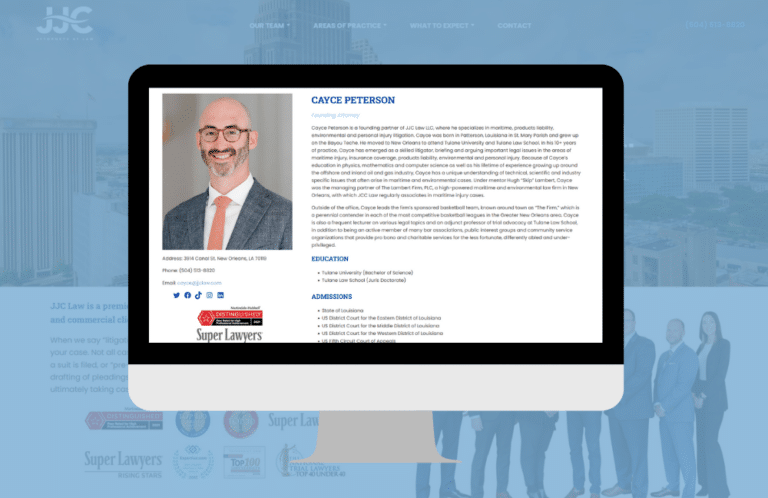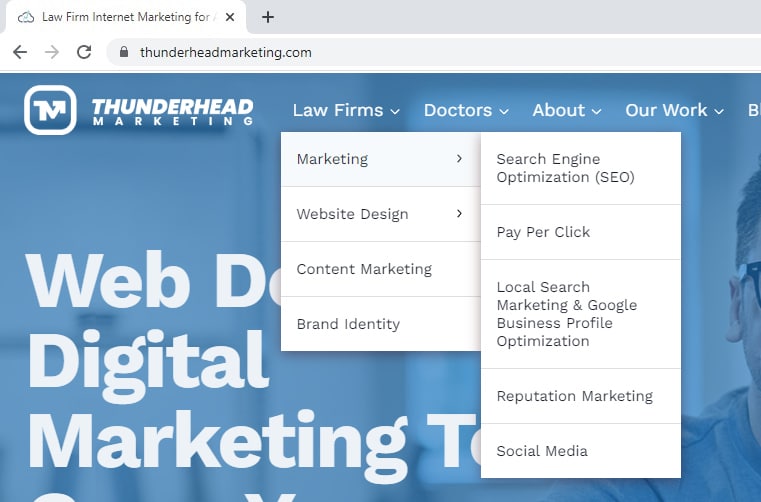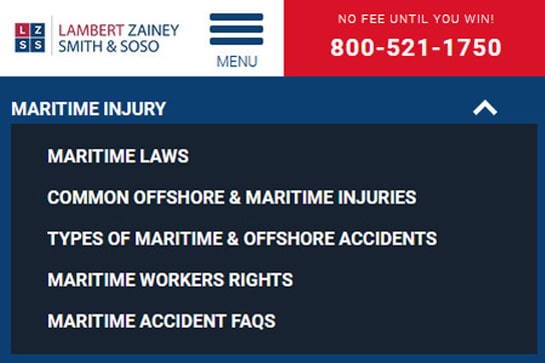As a lawyer, your blog is your voice, and it should reflect not only your expertise but also your personality. It’s an opportunity to educate, engage and interact with potential clients and fellow attorneys. But coming up with fresh blog ideas can be daunting. That’s why our legal blogging gurus have compiled a list of 11 must-try law blog topics that will help you create valuable content that resonates with your audience.
In this blog post, we will explore all 11 topics in detail and provide you with tips on how to incorporate them into your law firm’s content marketing strategy. So put on your thinking cap, grab a cup of coffee, and let’s dive in!

1. Comprehensive Guides on Specific Practice Areas
When establishing expertise in specific areas of law, creating comprehensive guides can be a great way to dive deep into legal topics and provide in-depth knowledge and guidance. These guides help potential clients understand complex legal concepts and boost your credibility as a legal professional by sharing valuable insights and expertise.
Why is specialization important in your blog topics?
Focusing on specific practice areas in your law blog is a great way to attract a targeted audience. If you’re a divorce lawyer, it doesn’t matter if you have 5,000 views on your blog if your readers aren’t married, right? There’s a lot to be said for increasing brand awareness for people who may need your services in the future, but we know there are people out there right now looking for a divorce attorney, so let’s start with trying to reach those people.
By consistently publishing specialized content, you can position yourself as an expert in a specific legal field. This allows you to cater to the needs of your target audience by addressing their specific legal concerns. Offering unique insights and advice on specialized topics helps you stand out from competitors.
Additionally, by targeting niche keywords related to your practice area, you can also increase organic traffic to your website and improve your search engine optimization. Sharing informative content on specific practice areas is a good idea for long-term digital marketing success.
5 Examples of Comprehensive Guide Blog Post Topics
- “Common Misconceptions About Personal Injury Claims”
- “Family Law: A Guide to Child Custody and Support”
- “Understanding Intellectual Property Rights in the Digital Age”
- “The Role of Facebook in Disability Denial Claims”
- “Recent Changes in Insurance Law: What You Need to Know”
2. Analysis of Recent Legal Changes
Staying up-to-date with the latest legal developments is crucial for lawyers, so you’re likely already doing the legwork for this. Take it a step further and write a blog post providing expert analysis and interpretation of recent legal changes. This can help your audience understand the implications of new laws and regulations.
Sharing your insights positions you as a thought leader and encourages engagement from your audience. Discussing and sharing opinions on legal changes creates a space for meaningful conversations. By offering valuable information on recent legal changes, you establish credibility with you target audience.
5 Examples of Law Blog Topics on Recent Legal Changes
- “How Will New California Law Requiring Employers to Provide Paid Sick Leave Affect Small Business Owners”
- “What You Need to Know About the New Consumer Protection Laws in New York”
- “How Florida Law Changes to Personal Injury Statute of Limitations Affects Your Accident Claim”
- “How the New Texas Drunk Driving Laws Will Affect Drivers, Victims and Law Enforcement”
- “How the SEC’s Proposed Changes to Accredited Investor Definition Will Affect Investors”
3. High Profile Cases: A Commentary
High-profile cases have a significant impact on the legal landscape, setting legal precedents that influence future rulings and shape the course of the law. Landmark court decisions have a societal impact, shaping public perception and awareness of legal issues.
Writing blog posts on recently decided or ongoing high-profile court cases provides a great way to engage your audience and offer insightful commentary on complex legal issues. You can discuss the potential legal implications and significance of notable cases, demonstrating your expertise in the field. This type of content also encourages your audience to share their opinions and participate in the discussion.
The media and public opinion play a crucial role in high-profile cases, often swaying public sentiment. For legal professionals, it is essential to navigate these cases with practical advice and expertise. Understanding how high-profile cases affect the legal landscape is vital for staying informed and adapting to changes in the field.
3 Examples of Blog Topics for High-Profile Cases
- “The Implications of West Virginia v. EPA for Climate Change Regulation”
- “The Michael Oher Case: What You Need to Know About Conservatorships”
- “The Johnny Depp vs. Amber Heard Defamation Trial: What We Can Learn”
4. Step-by-Step Guide to Legal Procedures
Simplifying complex legal procedures into easily understandable terms is a great way to demystify the legal process for clients. By breaking down legal jargon, lawyers can make it more accessible to clients and help them navigate the system with ease. Providing step-by-step guides on common legal processes and offering practical advice is also essential. Additionally, explaining the implications of legal documents and contracts ensures that clients understand their rights and responsibilities. Demystifying legal processes is a valuable service that lawyers can provide to empower their clients.
5 Examples of Legal Guide Blog Post Topics
- “A Beginner’s Guide to Filing for Divorce: Step-by-Step Process and Key Considerations”
- “Understanding the Probate Process: A Comprehensive Step-by-Step Guide”
- “Making Sense of Personal Injury Claims: What to Expect and How to Navigate the Legal Process”
- “The Legal ABCs: A Simplified Guide to Understanding Contracts and Agreements”
- “Employment Law 101: A Step-by-Step Approach to Resolving Workplace Disputes”
5. Expanding FAQs into Detailed Discussions
Going beyond simple answers, this type of blog post will provide in-depth explanations, address misconceptions, offer practical advice, and explore complex legal concepts.
The blog post pictured below from Rivas Law Group is a good example of this, exploring in-depth what accident victims need to know about how pre-existing conditions affect a personal injury case.
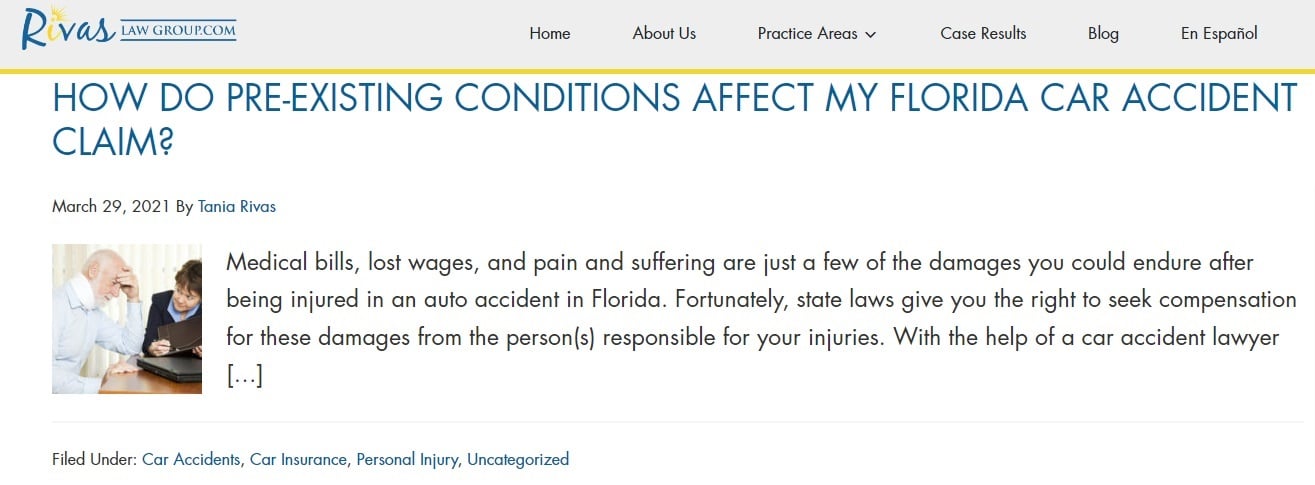
5 Examples of FAQ Blog Post Topics
- “Why Is a Power of Attorney Important and How Does it Work?”
- “How Long Do I Have to File a Lawsuit After a Car Accident?”
- “Can You Be Fired for Social Media Posts?”
- “What Factors Does the Court Consider When Deciding Child Custody Cases?”
- “What Should I Do If I’m Accused of Shoplifting?”
6. Helpful Information for Prospective Clients
When seeking legal representation, it’s important for prospective clients to know what to look for in a lawyer. Writing blog posts that highlight key qualities and factors to consider can help guide clients in their decision-making process. Providing information on topics such as expertise, experience, communication skills, and client testimonials can give prospective clients a better understanding of what they should prioritize when choosing a lawyer.
5 Examples of Blog Posts for Prospective Clients
- “Choosing the Right Lawyer: Key Qualities to Consider”
- “10 Essential Questions to Ask a Potential Lawyer Before Hiring Them”
- “The Importance of Specialization: Why Hiring a Lawyer with Expertise Matters”
- “Understanding Legal Fees: A Guide to Different Billing Structures and Cost Estimates”
- “The Benefits of Local Representation: Why Choosing a Lawyer in Your Area is Advantageous”
7. Comparing Professional Legal Assistance and DIY Legal Cases
In the age of DIY everything, it’s not uncommon for potential clients to wonder why they need a lawyer for what seems like a small legal matter. However, there are several important reasons why professional legal assistance is crucial and cannot be replaced by DIY legal cases. Writing blog posts that compare the two options can help potential clients understand the advantages of hiring a lawyer.
4 Examples of Blog Topics on Professional vs. DIY Legal Cases
- “The Consequences of DIY Legal Cases: Common Mistakes to Avoid”
- “Why Professional Legal Assistance is Worth the Investment”
- “The Complexity of the Legal System: How Lawyers Navigate it for You”
- “Questions to Ask Yourself When Deciding Whether You Need a Lawyer”
8. Preparing for Initial Legal Consultations
Preparing for an initial legal consultation is crucial. Blog posts are a great way to share insights and information on this first meeting to help potential clients know what to expect and how to get ready.
4 Examples of Law Blog Topics to Help Clients Prepare for Consultation
- “The Dos and Don’ts of Preparing for Your First Legal Consultation”
- “What to Bring and What to Ask: A Guide to Making the Most of Your Initial Legal Consultation”
- “Understanding the Purpose and Importance of an Initial Legal Consultation”
- “Tips for Effectively Communicating Your Legal Needs during an Initial Consultation”
9. Future Law Changes: A Prediction
As legal professionals, it’s crucial to keep a finger on the pulse of upcoming legal reforms and their implications. By discussing these reforms, your law firm can provide valuable insights into how they will affect your clients, such as Lisa Levine’s blog post on proposed Florida law changes pictured below.

Analyzing court cases and their implications for future legal decisions allows you to stay ahead of the curve and provide informed advice.
3 Examples of Blog Topics on Future Law Changes
- “Anticipating Legal Reforms: How Upcoming Changes in Drinking and Driving Laws Might Impact Your DWI Case”
- “The Evolution of Family Law: Proposed Changes in Child Custody Laws and Their Effects on Families”
- “Navigating the Future: The Impact of Artificial Intelligence on Intellectual Property Law”
10. Showcasing Notable Case Results
Share details of successful cases and highlight the unique legal challenges you faced and overcame. By showcasing evidence of your legal expertise, you establish credibility and build trust with your readers. Your success stories demonstrate your ability to handle complex cases and provide valuable insights into the legal field.
3 Examples of Notable Case Results Blog Topics
- “Defending the Innocent: A Landmark Wrongful Conviction Case and How Justice Was Restored”
- “A Triumph of Justice: The David vs. Goliath Legal Battle That Set a Precedent”
- “The Power of Persuasion: How Skillful Negotiation Led to a Favorable Settlement in a High-Stakes Corporate Lawsuit”
11. Provide Related Non-Legal Information
Including non-legal information that aligns with the target audience’s interests is a great way to increase engagement on law blogs. Sharing relevant news, lifestyle tips, or industry updates can attract a wider audience and showcase the blog’s versatility and expertise beyond legal topics.
You can also help potential clients with problems tangentially related to their legal needs, such as the blog from Lambert Zainey pictured below, “How do I change careers after a maritime injury?”
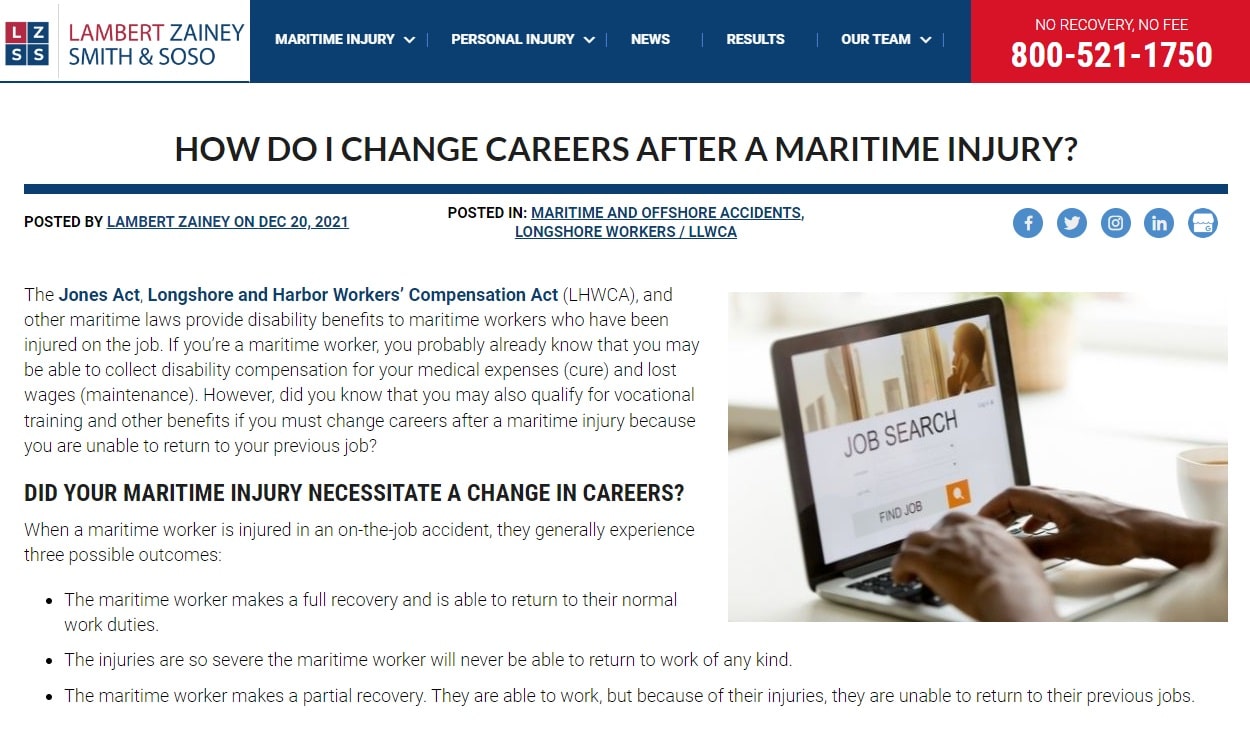
In addition, providing non-legal information creates opportunities for building a community around the blog and collaborating with others for cross-promotion. Incorporating such related non-legal information on a regular basis can be a good idea for long-term growth and establishing authority in the field of law.
5 Examples of Related Non-Legal Blog Topics for Your Clients
- “The Road to Recovery: Navigating Physical and Emotional Healing After an Accident”
- “Crafting a Solid Business Plan: Key Elements for Success”
- “Navigating Emotional Challenges During Divorce: Self-Care and Coping Strategies”
- “Life with Disabilities: Accessible Living Tips and Resources”
- “Exploring Renewable Energy: Benefits, Challenges, and the Legal Landscape”
Law Blog Hot Tip: Incorporate Vlogs
Enhance blog engagement by incorporating vlogs into your law blog. A vlog, or video blog, allows you to connect with your audience on a more personal level and engage them through visual storytelling. Vlogs can be a powerful tool in conveying complex legal concepts in a digestible and relatable format.
Consider creating vlogs that showcase behind-the-scenes moments at your law firm, interviews with legal experts, or even live coverage of high-profile court cases. By incorporating vlogs into your law blog, you not only provide valuable information but also add an element of entertainment and interactivity for your audience.
Enhancing Engagement through Multi Format Content
Incorporating multi-format content like videos, infographics, and podcasts is a great way to boost engagement on your law blog topics. By providing content in different formats, you cater to diverse learning preferences and stimulate interest through visuals and audio. This not only increases the time spent on your blog but also allows for easy sharing on social media platforms, expanding your reach. Using various content formats helps differentiate your blog in a saturated market, making it a good idea for long-term engagement.
Bonus Tip: Scope Out the Competition
Coming up with great topics is a moot point if no one ever finds your blog posts. Getting your content to rank in search engines is key to being found by your audience.
To be on top, you have to be better than your competitors, so it’s important to know what they are doing. Google some of the keyword phrases you want to rank for and click on the top-ranked sites. Look around their blogs and take note of a few things:
- How long their posts typically are
- What topics they cover
- Howe often they are posting
This gives you a good baseline of what you are up against and what you should strive to either match or even exceed.
3 Things To Remember
- Always keep your intended reader in mind when coming up with ideas. Who will be reading this? Potential clients or other lawyers?
- Editorial calendars are the secret sauce of a solid content strategy. Not only do they help you plan and organize your content, but they help you stay accountable and diligent in spacing out your content.
- If you had 10 pieces of killer content ready to go, it would be better to spread them out and publish them over time rather than all at once. Consistency is what you should be striving for.
Frequently Asked Questions About Blogging for Law Firms
Can seasonal content benefit law blogs?
Seasonal content can be highly beneficial for law blogs. By creating content that is relevant to specific times of the year, you can attract readers who are searching for legal information during those periods. This allows you to address timely topics and showcase your expertise in a fast-changing legal landscape. Additionally, sharing seasonal content on social media platforms and targeting specific audiences can further increase engagement.
How often should lawyers update their blog content?
Lawyers should update their blog content regularly, but not excessively so — 2-3 posts a month should be plenty. Consistent updates maintain reader interest and engagement, while also improving SEO rankings and visibility. Fresh content positions the blog as a trusted source of information and allows for addressing new legal developments and frequently asked questions.
How can I increase traffic for my law firm blog?
There are a lot of things you can do to increase traffic to your law firm blog, but here are the top 3 that the law blog pros at Thunderhead Marketing recommend:
– Do keyword research and optimize your blog posts for search engines.
– Promote your blog posts on social media.
– Guest blog on other relevant websites.
Don’t Have Time to Blog? Let Us Help
If spending a lot of time coming up with law blog topics and turning them into share-worthy content sounds like a time suck you aren’t interested in, Thunderhead Marketing is here to help! Our team of experienced blog writers for lawyers specialize in creating blog posts that are informative, engaging and effective at driving traffic to your website. Contact us today to learn more about our services.

